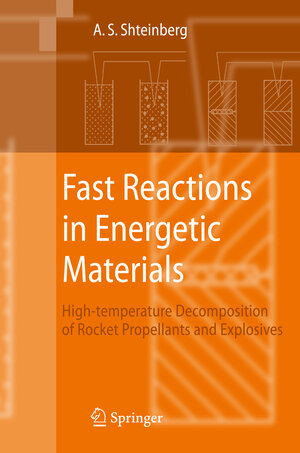
×
![Buchcover ISBN 9783642097676]()
Fast Reactions in Energetic Materials
High-Temperature Decomposition of Rocket Propellants and Explosives
von Alexander S. Shteinberg, übersetzt von Maria RusanovaModern energetic materials include explosives, blasting powders, pyrotechnic m- tures and rocket propellants [1, 2]. The study of high-temperature decomposition of condensed phases of propellants and their components (liquid, solid and hybrid) is currently of special importance for the development of space-system engineering [3, 4]. To better understand the burning mechanisms (stationary, nonstationary, - steady) of composite solid propellants and their components, information about the macrokinetics of their high-temperature decomposition is required [5]. To be able to evaluate the ignition parameters and conditions of safe handling of heat-affected explosives, one needs to know the kinetic constants of their high-temperature - composition. The development of new composite solid propellants characterized by high performance characteristics (high burning rates, high thermal stability, stability to intrachamber perturbations, and other aspects) is not possible without quanti- tive data on the high-temperature decomposition of composite solid propellants and their components [6]. The same reasons have resulted in signi? cant theoretical and practical interest in the high-temperature decomposition of components of hybrid propellants. It is known that hybrid propellants have not been used very widely due to the low bu- ing (pyrolysis) rates of the polymer blocks in the combustion chambers of hybrid rocket engines. To increase the burning rates it is necessary to obtain information about their relationships to the corresponding kinetic and thermophysical prop- ties of the fuels.



